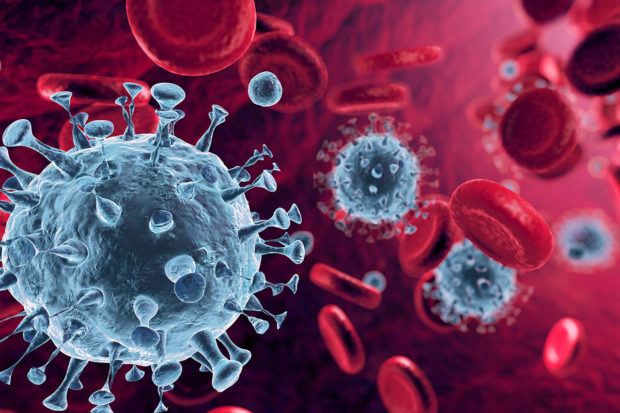
Novel coronavirus jumped from bats to humans with ‘very little change’, say scientists
PTI, Mar 14, 2021, 12:51 PM IST

London: The progenitor of the novel coronavirus underwent “very little change” to adapt to humans from bats, according to a new study which suggests that the ability of the virus to spread from one person to another likely evolved in the flying mammal prior to it jumping to its new human host.
The study, published in the journal PLOS Biology, assessed hundreds of thousands of sequenced genomes of the SARS-CoV-2 virus and found that for the first 11 months of the COVID-19 pandemic, there has been very little ”important genetic change” observed in the coronavirus.
However, it noted that some changes such as the D614G mutation, and similar tweaks in the virus spike protein has affected its biology.
“This does not mean no changes have occurred, mutations of no evolutionary significance accumulate and ”surf” along the millions of transmission events, like they do in all viruses,” explained study first author Oscar MacLean from the University of Glasgow Centre for Virus Research in Scotland.
But the scientists said it was “surprising” how transmissible SARS-CoV-2 has been from the outset.
“Usually viruses that jump to a new host species take some time to acquire adaptations to be as capable as SARS-CoV-2 at spreading, and most never make it past that stage, resulting in dead-end spillovers or localised outbreaks,” said Sergei Pond, another co-author of the study from Temple University in the US.
Analysing the mutations undergone by the novel coronavirus and related sarbecoviruses — the group of viruses the COVID virus belongs to from bats and pangolins — the scientists found evidence of fairly significant change, but all before the emergence of SARS-CoV-2 in humans.
Based on this observation, the researchers said SARS-CoV-2 came with a ready-made ability to infect humans and other mammals, with these properties likely evolving in bats prior to it jumping to humans.
“While an undiscovered ”facilitating” intermediate species cannot be discounted, collectively, our results support the progenitor of SARS-CoV-2 being capable of efficient human–human transmission as a consequence of its adaptive evolutionary history in bats, not humans, which created a relatively generalist virus,” the scientists wrote in the study.
Although the novel coronavirus is still cleared by the human immune response in the vast majority of infections, the scientists cautioned that it is now moving away faster from the January 2020 variant used in all of the current vaccines to raise protective immunity.
The current vaccines will continue to work against most of the circulating variants, but as more time passes, and the bigger the differential between vaccinated and not-vaccinated numbers of people, they said there will be more opportunity for the virus to escape vaccines.
“The first race was to develop a vaccine. The race now is to get the global population vaccinated as quickly as possible,” said David L Robertson, lead author of the study from the the University of Glasgow.
Udayavani is now on Telegram. Click here to join our channel and stay updated with the latest news.
Top News

Related Articles More

‘Faster walkers’ had significantly lower risk of diabetes, hypertension: Study

World Meditation Day 2024: Celebrating inner peace and well-being

Virus causing gut infections could play role in development of Alzheimer’s: Study

Air pollution linked to more hospitalisations for all causes, mental illness too, study finds

Plant-based meat alternatives linked to increased risk of depression in vegetarians, study finds
MUST WATCH
Latest Additions

Zakir Hussain’s family shares first Instagram post after his death: Always together in love

Delhi Police identifies 175 people in verification drive against illegal Bangladeshi immigrants

We have evidence of BJP MLC Ravi using invective inside K’taka Legislative Council: CM Siddaramaiah

Diljit Dosanjh denies blocking AP Dhillon on social media

India beat Bangladesh by 41 runs to bag Women’s U19 T20 Asia Cup
Thanks for visiting Udayavani
You seem to have an Ad Blocker on.
To continue reading, please turn it off or whitelist Udayavani.




















